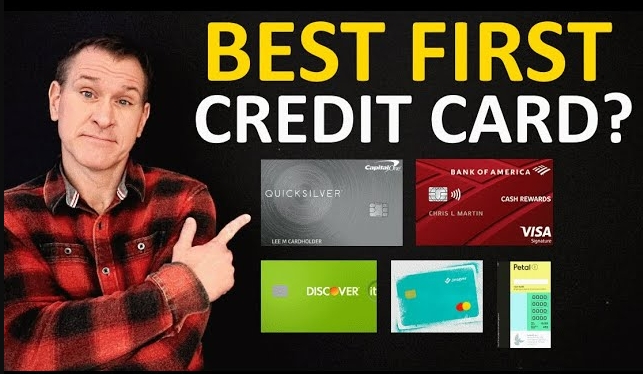Best First Time Credit Card
Your first credit card can either lead to a mound of debt that you fight to pay off for years or it can be the first step toward having a solid financial future and a high credit score. Here are some pointers to help you make the correct decisions before using your first credit card.
1. Set a Budget
Although using a credit card is a simple way to make purchases and accrue rewards, you shouldn’t use it to make unaffordable purchases. You may avoid going into debt by having a realistic sense of how much you can spend and pay off at the end of the month.
Try creating a budget using the 50/30/20 rule, which recommends allocating 50% of your gross income to essentials like housing and food, 30% or less to wants but no needs, and 20% or more to savings and debt repayment. This will assist in keeping your credit card usage in line with your income and other priorities for saving and spending.
2. Keep Track of Your Purchases
The initial step is figuring out how much money you have available to spend. After that, be diligent about monitoring your purchases throughout the month, perhaps with the use of the mobile app or website for your credit card. Avoid using the card once you’ve reached your monthly spending cap until the balance is paid in full. This level of self-discipline keeps you out of debt and improves your credit score.
3. Set Automatic Payments
Getting used to paying a bill each month can take some time. Make sure your credit card payments are made on time by setting up automated payments before the due date. Make sure you have enough money in your checking account before the scheduled payment and that the amount is greater than the minimum payment—ideally, your entire balance. Otherwise, a late fee or a returned payment cost may be assessed. 1
Paying bills on time is particularly crucial because your credit score, a three-digit figure used by lenders to assess your credit utilization, is largely influenced by your payment history. To maintain a high credit score, try to pay all of your credit card bills on schedule. 2
4. Use Little of Your Credit Limit if Possible
It can be tempting to charge everything allowed on your credit card, but it’s important to resist the urge. The second major factor affecting your credit score is credit utilization, or how much of your credit limit you are actually utilizing. Your credit score can be impacted if you rack up a big credit card balance and carry it from month to month. Additionally, it may provide the groundwork for accumulating credit card debt, which can be difficult to pay off.
5. Pay Your Bill in Full Each Month
You are only required to pay the minimum payment, which is a percentage of your debt due, by your credit card company. Even while it may seem much simpler and less expensive to pay only a portion of what you owe, doing so will end up costing you money in the long run.
If you just make the bare minimum payment each month, interest will be added to your debt until it is paid in full. Since a percentage of your payment will go toward interest accrued, your debt will only reduce somewhat each month. The final word? You can avoid paying interest by paying off your bill in full each month.
6. Check Your Statement Regularly
Your credit card company will give you a statement every month that lists all of your purchases from the previous payment cycle. Even if you have planned your monthly payment, it is still vital to read your billing statement. Reviewing your statement will help you find any mistakes or unlawful charges. If you notice either of these, notify your credit card company right away so that it may be resolved.
7. Redeem Rewards
Make sure you comprehend the rewards program if you have picked a rewards credit card as your first credit card. Spend in the areas that reward you the most, like restaurants or gas, to get the most cash back or points.
Don’t let your awards sit around unused after that. You can exchange rewards for a statement credit, a check to your bank account, travel, lodging, gift cards, and more, depending on your credit card. There are some prizes that must be used by a certain date or they will expire. The expiration policy of your card can be found in the fine print.
8. Use the Extra Perks
In addition to cash back or travel rewards, many credit cards also provide other benefits. A few benefits provided by many credit cards include extended warranty, free rental vehicle insurance, waived checked baggage fees, travel insurance, and price protection, which offers a return if an item’s price reduces after you purchase it. If you have any questions about the benefits that come with your credit card, call customer care or log into your online account to examine your credit card agreement.
9. Know Your Fees, and How to Avoid Them
With the exception of an annual fee, you can avoid paying most credit card fees by abstaining from particular actions. For instance, you can pay your bills on schedule to avoid incurring late fees. To avoid paying a cash advance fee, avoid the cash advance. By using a card that doesn’t charge them, you can avoid paying foreign transaction fees when making purchases abroad.
10. Download Mobile App
You may manage your credit card account while on the road by using the mobile app for your credit card. To access your balance, check your available credit, verify that your payment posted, and more, you can log in at any time. You could accomplish a lot of stuff using the browser on your phone, but apps are frequently made to be quicker and simpler to use on mobile devices.
